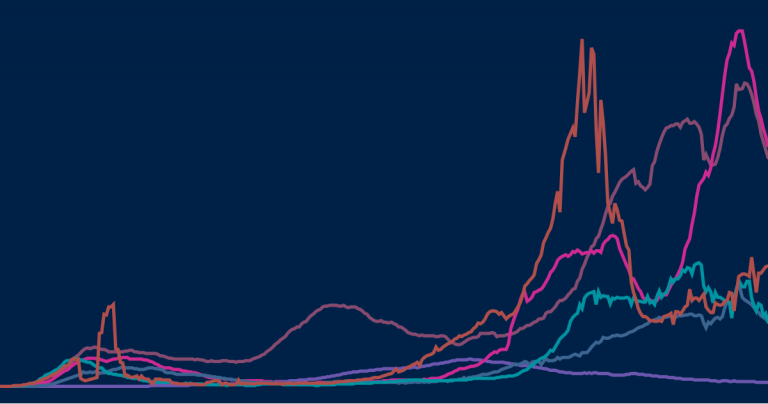Tunisia currently faces its third and most severe wave of Covid-19. On a global population of 11,700,000 habitants, Tunisia has crossed the threshold of 150 new infections per day and per million persons, cumulating on 15 April 2021 281,777 positive cases of Covid-19 and 9,639 deaths. The intensive care facilities are almost saturated and the medical staff is exhausted.
Immediately after diagnosing the first cases of Covid-19 and fearing that its weak health system would collapse, Tunisia decided to take a series of radical measures to prevent the spread of the virus. Declaring both a state of exception, provided for by Article 80 of the Constitution, and a state of emergency, the President of the Republic and the Head of Government have each, within the scope of their competences, taken a certain number of decisions including, among others, the closure of the borders, curfew, a total confinement and the mobilization of the National Observatory of New and Emerging Diseases. In June 2020, the crisis seemed to be under control. With only about 50 deaths, the management of the crisis seemed to be a success. However, only two months after the restrictions were lifted, Covid-19 reappeared, the number of contaminations exploded and the number of deaths was worrying. At the end of January 2021, the cumulative number of Covid-19 cases exceeded 200,000, and the number of deaths exceeded the 6,400 threshold. Once more, the government could not decide on full containment measures because of the deep economic crisis currently hitting the country. As a result, partial containment measures, such as curfew, shift work in the civil service, compulsory testing and quarantine for travellers coming from at-risk destinations, were taken. After a brief break in February 2021, a third wave of the epidemic arose in late March 2021, and is currently spreading throughout the country. The last measures taken by the Government on 17 April 2021 include the closure of schools and colleges, the introduction of remote learning for universities until 30 April 2021, and a nationwide curfew from 10 pm to 5 am.
The young Tunisian democracy, built after the 2011 revolution on the basis of the 2014 constitution, is fragile. In the midst of the first wave of the pandemic, the country experienced a serious political crisis that led to a withdrawal of confidence in the Government. The political fragmentation of the Parliament, as well as the conflict between the President of the Republic and the Head of Government (who, according to the constitution, exercise executive power concurrently) were serious handicaps to the management of the health crisis. It made the choices between the health emergency and the economic constraints particularly difficult.
As a decentralized unitary state, Tunisia has not left much space for action to the municipalities. Although the latter have their own competences, they do not have the financial or human resources necessary to manage a crisis as important as the Covid-19 pandemic. The crisis has been handled in a rather centralized manner, with some scope for decision-making left to regional governors, appointed by the Government and representing it in the regions.


